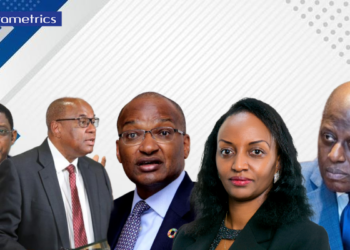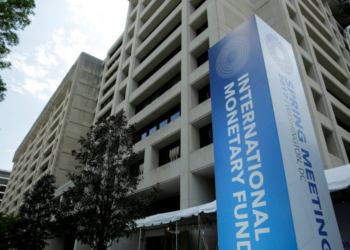In 2011, Warren Buffett invested $5 billion in the Bank of America. On October 9, Bank of America CEO, Brian Moynihan was discussing this investment on the David Rubenstein Show. In 2011, Bank of America’s financial health deteriorated after the global financial crisis.
However, Buffett bought preferred stock in the bank. In 2017, that $5 billion investment expanded to $12 billion, gaining a whopping $7 billion.
A similar situation that happened in America about a decade ago is taking it to shape in the Nigerian Stock Exchange as the dividend yield on the Nigerian equities market has in recent times continued to increase as a result of the persistent free-fall in equity prices owing to a bouquet of factors.
The global Coronavirus pandemic has further strengthened the panic selloffs in the local and foreign financial markets.
[READ MORE: Here’s what Warren Buffet thinks parents should teach their kids about money)
The impact of the virus seems heavy, killing more stock markets and economy than people across the globe, sending panic waves around the world, more devastating than the financial meltdown of 2008.

Nigerian stocks hit new lows as the Nigerian ASI Index hit a new 11-year low on a huge traded volume that suggests that investors are dumping their shares, in their desperate bid to cut their losses.
So far, the Nigerian market has lost all of 13% in just four trading sessions of the week, just as over N1.82 trillion has been shaved off the market capitalization within the same period.
Meanwhile, with the resultant fall in the price of crude oil at the international market, the Nigerian economy is already challenging Nigeria on fiscal balancing and its recent devaluation of the naira
The Central Bank of Nigeria’s efforts to spur economic growth and development through the low-interest rate regime, a situation that is first in the history of Nigeria, even as the lack of investor protection and corporate governance are hurting the market.
READ MORE: Another crushing recession ‘is coming’
The prolonged market downturn has, however, boosted yield, especially of blue-chip stocks and other dividend-paying equities across the different sectors of the market. Banking and other financial services stocks are powerhouses of any economy, just as they are intermediaries and agents of development.
Dividend investing has become necessary in the post-general election Nigerian stock market.
That has been characterized by a free-fall in equity prices, which has eroded investors’ capital and confidence in the entire economy due to weak macro-economic indices and a lack of development and growth-stimulating policies from the government to offer the much-needed direction.
The Dividend Yield at any time measures how much cash flow you as an investor are getting for every Naira invested in a company’s equity. It also tells what percentage of net profit a company pays out in the form of dividends. This is one of the main factors you need to consider when investing in dividend-paying stocks.
It’s expected that there will be a slowdown on the losing momentum as low prices of stocks and high dividend yields attract buying interest that cannot be resisted by smart money, as more audited corporate earnings hit the market, going forward.
[READ ALSO: Why Warren Buffet’s $4.6m lunch with Bitcoin entrepreneur is experiencing delay)
This is despite the likely continuation of the mixed intraday movement in the midst of selloffs, with investors buying increasing positions in undervalued stocks ahead of dividend declaration.
This is also against the backdrop of the fact that the capital wave in the financial market may persist in the midst of relatively low-interest rates in the money market, high inflation and unstable economic outlook for 2020.
Nigeria top tier one banks like ZENITH, GUARANTY, UBA, FBNH, ACCESS look attractive based on their recent Price book ratio and dividend yield.
However, it’s very important to seek a certified financial advisor or licensed stockbroker, when picking stocks for investments, as unprofessional advice can erode your capital or savings.





















